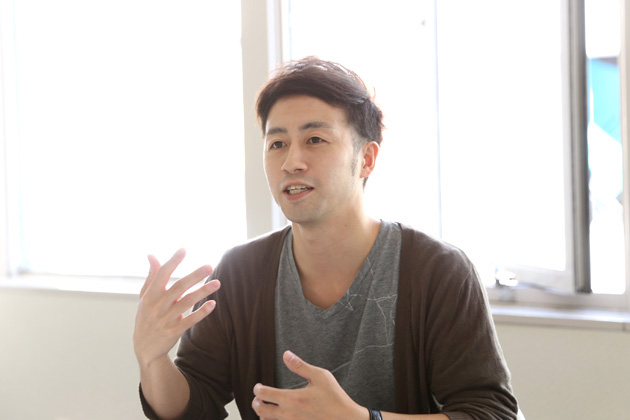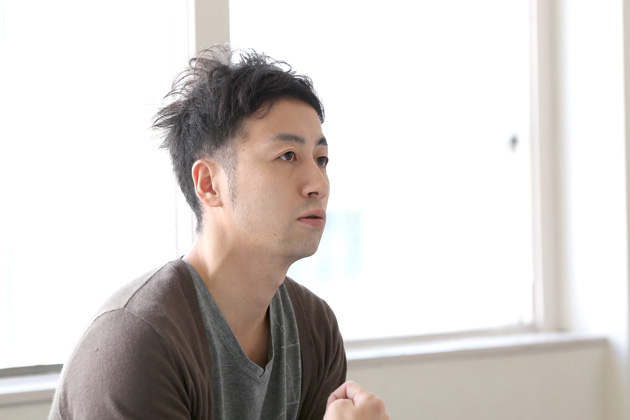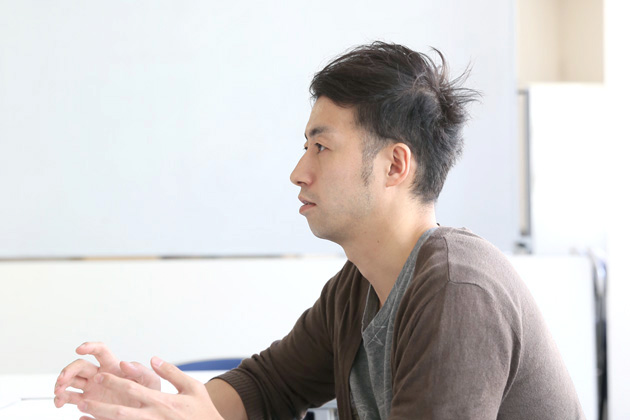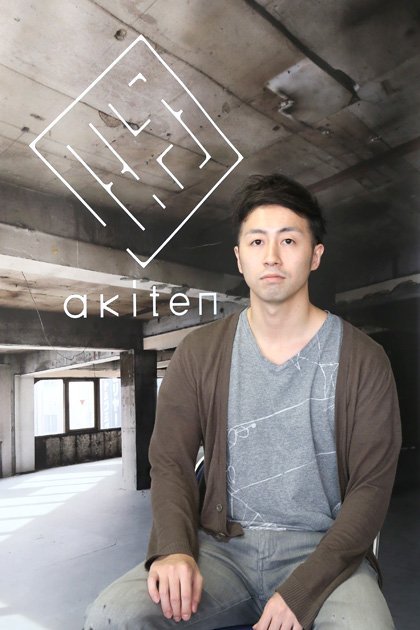
Interview with Hachioji City Councillor Kenichi Oikawa
Please tell us about what you do now.
Kenichi Oikawa (Oikawa)I work mainly in 3 different fields now. One is as an independent member of Hachioji City Government. Another one is as the leader of AKITEN, an NPO that holds art projects to cheer up Hachioji city. Lastly, I work as a producer of a TV show called “Hachioji-kanojo”.
What made you want to become a politician at such a young age?
OikawaWhen I was a student, I always wanted to contribute to the world for the better and cheer up the local community. Then, 4 choices came up in my mind; to work as a businessman to feel the sense of helping the world, to start up a business, to found an NPO, and to become a politician.
Why did you choose politics first?
OikawaAt first, I worked at a consulting firm because I wanted to do something that contributed to society. Then, I launched a business with my friend, running a cafe-like event space. After that, I became a politician and founded an NPO. Currently, I'm trying to find out which one contributes the most to society. I didn’t try each of them one by one, but instead, I did both at the same time; I operated a business and got involved with politics. Now I’m not active in a business. I work as a politician and the head of an NPO. Now I’m in search of better combinations and new things.
If you’re still in search, is it possible that you will start to look for something different if you feel that politics is not a job that helps the world?.
OikawaThe same thing could be said about other jobs, but you don’t abandon the job just because it is not what you expected. So I’ll try to continue and find out the potential, or quit one of the two jobs and start a new one, or increase to 3 from 2.

How did your family react when you told them that you were going to quit the firm and become a politician?
OikawaMy mum, sister and grandma were all against my decision. Maybe they were simply worried about me. You don’t know what people will say if your son becomes a public figure, and you will have to be extra careful with your behavior when you go outside. In that sense, my family was feeling anxious. Also, the company I worked at was SONY, a giant firm. When I disclosed that I wanted to be a politician, they may have been worried that I was quitting a stable job to become a politician.
Despite the opposition from your family, you became a politician. How is life now?
OikawaThere is no distinction between work and private life. My career in politics, AKITEN, and Hachioji-kanojo are all connected to this idea of cheering up the community and solving social problems by new methods. AKITEN and Hachioji-kanojo are more like my hobbies so even though they’re my professional jobs, they’re also in my private realm. Even on my days off, I often thought, “This town is interesting. This shop is interesting It was like I was working every day until I got used to it, but now I am already used to it. I think there is no longer a distinction between my job and private life.
I assume that there are many types of jobs to do as a politician. If there is no clear distinction with your private life, wouldn’t other politicians misunderstand that you’re not doing what you’re supposed to do?
OikawaWhen I think of the definition of a politician, I do not associate it with someone with a batch of the members. I believe that anyone who works for their community and society is a politician. I myself take this stance. Sometimes I attend the assembly as a batch of the members, and sometimes I work on projects to stimulate the community. I think these aspects show I am a politician. I have a clear definition of what a politician is, so I don’t really care what someone, especially those who misunderstand me, say about me.
Were there any difficulties being a politician at a young age?
OikawaI think that we have to get along with various kinds of people regardless of mindset or norms. If you’re working at a company, you talk with people who are in the same mindset as you or already know the established set of norms like people in your generation or your boss. You also so complete your job with people from the company who are at a similar skill level. However, when it comes to politicians, we work for everyone in the community - from children to the elderly. I face difficulty when I am told that I am inexperienced just because I am young. Even in this situation, I clearly state what I have to say in a polite manner. This occupation is meaningless if I compromise when I’m not supposed to do so.
What is the best thing about being a politician at a young age?
OikawaI felt that after becoming a member of the government, that many people actually support me because my age. People in the older generation think that the young ones are working hard, so they must work hard too. The generation slightly above me cheer me up with phrase like “you can do it!” People who are younger than me and students think that it is easier to talk to me because my age is closer to them than other politicians. In these cases, I feel happy about being elected at this age.

You were elected as an independent. What were the difficulties in campaigning and in the activities as a politician?
OikawaIn the election campaign, I didn’t have electoral support until I became a member of the government, so the difficulties were that I had to be introduced while on election campaign, and I didn’t receive a name list. After I became a politician, the difficulty was the fact that in the parliament, majority rules and that majority number is everything. Whereas in justice, there are absolute judgments by judges and juries. In regards to parliament, even if you believe something is absolutely logical, your opinion does not matter if it is in the minority. I feel irritated with this.
You have been a politician for 3 years. What has been the most memorable episode so far?
OikawaAKITEN and Hachioji-kanojo, I guess. It is not just memorable because of proposing ideas as a member of Hachioji City Government, but it is interesting how I can try things out by myself and see if it works. It is not just memorable because of proposing AKITEN and Hachioji-kanojo like, “why don’t we try this to stimulate this city?”, but it’s memorable because I actually feel the sense of achievement by being proactive and making it one by one.
What do you think are the problems and hardships of Hachioji City?
OikawaI think the problem is the fact that this city is turning into a hyper-aged society. When the percentage of population over the age of 65 is more than 21%, it is called a hyper-aged society. In the case of Hachioji, it has already reached 23%. In a hyper-aged society, the expenditure increases and revenue decreases which results in a tougher financial situation.
The biggest problem is that the young ones, who are the working population, continue to decrease in number and because of that there will be fewer reasons to live in this city. In order for people to think they want to live in an area, factors like work place, places to live, places to have fun, and education are necessary. But if there is a decrease in the number of young people, it is possible that some schools will be closed. There will be less people who open a store and, fewer places where you can enjoy living. If there is less of the working population, the number of companies will decrease and places to work will decrease. The city will be less attractive in this way, so I think it is important that we make Hachioji a “fun place”.
This is the last question. Please tell us about your personal goals or dreams.
OikawaOne of the goals I want to achieve around age 50 is to apply policies and methods that stimulated Hachioji to other cities and countries. Suppose that you want to do this internationally. If you are obsessed with this idea of “applying these activities in Japan to foreign countries”, you wouldn’t have many options because there will be only the combinations of “countries and countries”. But I believe that there will be more combinations by apply the activities in towns to other towns or countries. Activities in Hachioji can be utilized in a small town in a totally different country and other countries too. So my goal is to take action in a very limited area and someday, apply them abroad.

